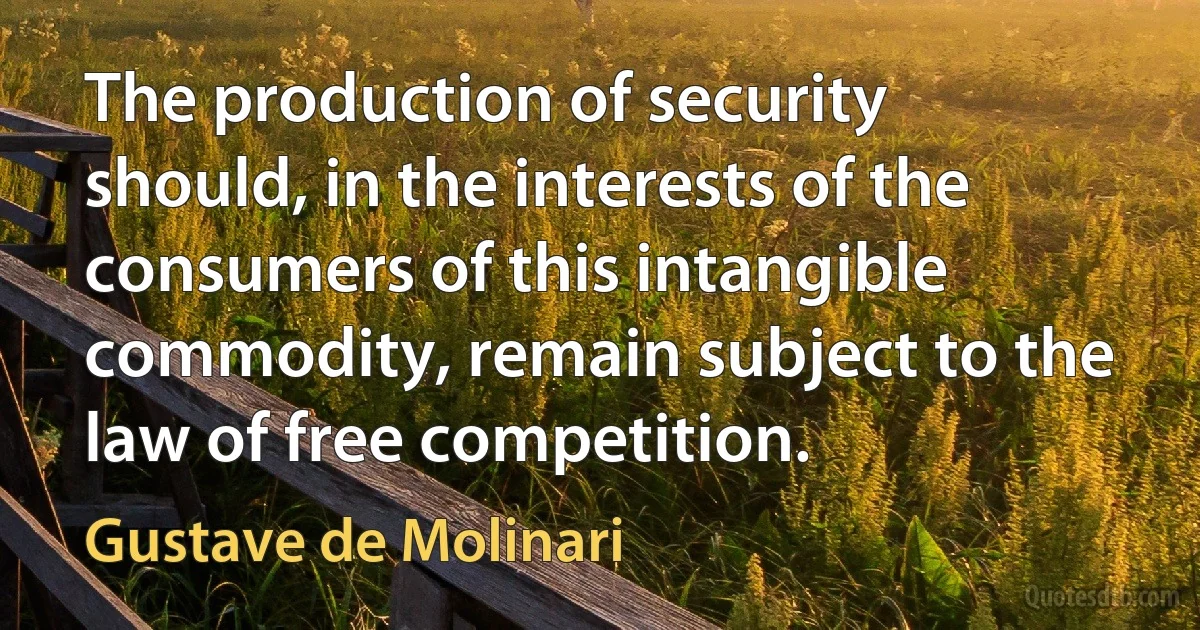Law Quotes - page 94
When you (President Ratu Sir Penaia Ganilau) called me at Lomaloma in December 1987 and asked me to form an Interim Government to prepare the country for a return to parliamentary rule, I knew the task at hand would be onerous. Fiji had experienced the ordeal of two military coups. Society was fractured, the economy was tottering and the country had been ostracised by some of its oldest friends and allies. There was no Parliament and no properly functioning political system. Even institutions of State, such as the judiciary, were seriously weakened, to the extent that the citizenry justifiably feared a breakdown in law and order. The business community was hit by a slump in sales and confidence, leading to reduced earnings and loss of jobs.

Kamisese Mara
It is from the traditional family that we absorb those universal ideals and principles which are the teaching of Jesus, the bedrock of our religious faith. We are taught the difference between right and wrong, and about the law, just punishment and discipline. We are taught to obey our parents, as Jesus did, and about the sanctity of truth and life itself. We are warned against lying, cheating and stealing. We learn that we must respect the person and property of others, care for each other, live and work together in cooperation, show loyalty, patience, kindness and share what we have. The family teaches us about the importance of knowledge, education, hard work and effort. It teaches us about enjoying ourselves, having fun, keeping fit and healthy.

Kamisese Mara
This church, so "fruitful in all good things,” invented crimes that it might punish. This church tried men for a "suspicion of heresy”-imprisoned them for the vice of being suspected-stripped them of all they had on earth and allowed them to rot in dungeons, because they were guilty of the crime of having been suspected. This was a part of the Canon Law. It is too late to talk about the "invincible stability” of the Catholic Church.

Robert G. Ingersoll
Men and women are not virtuous by law. Law itself does not of itself create virtue, nor is it the foundation or fountain of love. Law should protect virtue, and law should protect the wife, if she has kept her contract, and the man, if he has fulfilled his. But the death of love is the end of marriage. Love is natural. Back of all ceremony burns and will forever burn the sacred flame. There has been no time in the world's history when that torch was extinguished. In all ages, in all climes, among all people, there has been true, pure, and unselfish love.

Robert G. Ingersoll
The Christians mistake an incident for a cause, and honestly imagine that the Bible is the foundation of modern liberty and law. They forget physical conditions, make no account of commerce, care nothing for inventions and discoveries, and ignorantly give the credit to their inspired book.

Robert G. Ingersoll
The most minute directions were given as to the killing of these animals. Every priest became a butcher, every synagogue a slaughter-house. Nothing could be more utterly shocking to a refined soul, nothing better calculated to harden the heart, than the continual shedding of innocent blood. This terrible system culminated in the sacrifice of Christ. His blood took the place of all other. It is not necessary to shed any more. The law at last is satisfied, satiated, surfeited.

Robert G. Ingersoll
Thus the inertia of "progress" today leads swiftly downhill; while the attempt while the attempt to achieve stabilization by collective compulsion and social arrest likewise leads to the same destination--death. Only one road lies open to those who would remain human: the road of renewal. Each one of us must dedicate himself, at whatever effort, with whatever willing sacrifice, to such a transformation of himself and all the groups and associations of in which he participates, as will lead to law and order, to peace and cooperation, to love and brotherhood, throughout the planet.

Lewis Mumford
One of the most important components of such injunctions of the past that we have blindly carried on and which deserves to be thrown in the dustbins of history is the rigid caste system. This system has vivisected our Hindu society into so many micro-fragments, forever at war with one another. From temples, streets, houses, jobs, village councils, to institutions of law and legislature, it has only injected a spectre of eternal conflict between two Hindus; weakened our unity and resolve to stand united against any external threats. It is one of the biggest impediments in the conception of a Hindu Rashtra.

Vinayak Damodar Savarkar
If we legalised this state of lawlessness, then all those who are exposed to lawlessness are endangered. Today it is the Serbs and Montenegrins that suffer most from that, but tomorrow this could be the Albanians, too, and that is why, unless law and order is introduced and respected in the broader social and historical sense, this will be the interest of all of the inhabitants of Kosovo.

Slobodan Milošević
For as children tremble and fear everything in the blind darkness, so we in the light sometimes fear what is no more to be feared than the things that children in the dark hold in terror and imagine will come true. This terror, therefore, and darkness of mind must be dispelled not by the rays of the sun and glittering shafts of daylight, but by the aspect and law of nature.

Lucretius
As for principles of law, he should know those which are necessary in the case of buildings having party walls, with regard to water dripping from the eaves, and also the laws about drains, windows, and water supply. And other things of this sort should be known to architects, so that... they may be careful not to leave disputed points for the householders to settle after the works are finished, and so that in drawing up contracts the interests of both employer and contractor may be wisely safe-guarded.

Vitruvius
Of course, Charlie and I can identify only a few Inevitables, even after a lifetime of looking for them. Leadership alone provides no certainties: Witness the shocks some years back at General Motors, IBM and Sears, all of which had enjoyed long periods of seeming invincibility. Though some industries or lines of business exhibit characteristics that endow leaders with virtually insurmountable advantages, and that tend to establish Survival of the Fattest as almost a natural law, most do not. Thus, for every Inevitable, there are dozens of Impostors, companies now riding high but vulnerable to competitive attacks.

Warren Buffett
The United States doesn't and can't condone torture. And I want to make very clear that that's the view and the policy of the administration, the policy of the president, and that he's made very clear to American personnel that we will not condone torture.... Senator, under no circumstances should we or have we condoned torture. And the president has been very clear that he expects everyone to live up to our international obligations and to American law.

Condoleezza Rice
Beethoven's sonatas, whether show so much variety that one has to ask oneself the fundamental question of what the much vilified word ‘sonata means. Perhaps Beethoven applied the word to entities that are not even sonatas in the strict sense of the term. One has to perceive new law in the highly dramatic musical form. Often in the sonata, feeling eludes form. In Beethoven, that is not the case, for here the two go hand in hand; feeling makes form aware of a hole in the ground and vice versa.

Elfriede Jelinek
It does harm a great many other people, but primarily because it's prohibited. There are an enormous number of innocent victims now. You've got the people whose purses are stolen, who are bashed over the head by people trying to get enough money for their next fix. You've got the people killed in the random drug war. You've got the corruption of the legal establishment. You've got the innocent victims who are taxpayers who have to pay for more and more prisons, and more and more prisoners, and more and more police. You've got the rest of us who don't get decent law enforcement because all the law enforcement officials are busy trying to do the impossible.
And, last, but not least, you've got the people of Colombia and Peru and so on. What business do we have destroying and leading to the killing of thousands of people in Colombia because we cannot enforce our own laws? If we could enforce our laws against drugs, there would be no market for these drugs.

Milton Friedman
The organization of economic activity through voluntary exchange presumes that we have provided, through government, for the maintenance of law and order to prevent coercion of one individual by another, the enforcement of contracts voluntarily entered into, the definition of the meaning of property rights, the interpretation and enforcement of such rights, and the provision of a monetary framework.

Milton Friedman
A government which maintained law and order, defined property rights, served as a means whereby we could modify property rights and other rules of the economic game, adjudicated disputes about the interpretation of the rules, enforced contracts, promoted competition, provided a monetary framework, engaged in activities to counter technical monopolies and to overcome neighborhood effects widely regarded as sufficiently important to justify government intervention, and which supplemented private charity and the private family in protecting the irresponsible, whether madman or child-such a government would clearly have important functions to perform. The consistent liberal is not an anarchist.

Milton Friedman
IN a free‐enterprise, private‐property system, a corporate executive is an employe of the owners of the business. He has direct responsibility to his employers. That responsibility is to conduct the business in accordance with their desires, which generally will be to make as much money as possible while conforming to the basic rules of the society, both those embodied in law and those embodied in ethical custom. Of course, in some cases his employers may have a different objective. A group of persons might establish a corporation for an eleemosynary purpose-for example, a hospital or school. The manager of such a corporation will not have money profit as his objective but the rendering of certain services. In either case, the key point is that, in his capacity as a corporate executive, the manager is the agent of the individuals who own the corporation or establish the eleemosynary institution, and his primary responsibility is to them.

Milton Friedman



